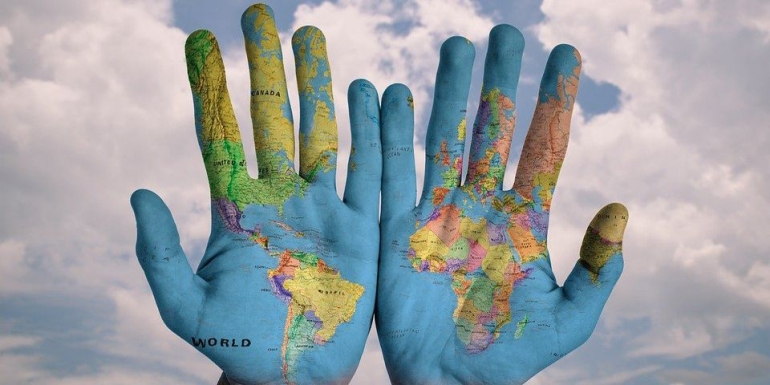This piece of writing will tell you a few reasons to let you think about fostering a local language. If you are not growing up with two languages, then may be you have sometime to consider reading this at home.
Let's just start with why learning another language is crucial, if you might want to consider reviving a local language. In fact, if not all, the majority of us at least know two languages at home, with one we speak very fluently and another we use less frequently.
Growing up in a multicultural society gives us some privilege to learn two languages naturally. Our ability to master local language is indeed a huge help to access another language as we grow up. Our active interaction within our community also helps faster our mastery of those languages; therefore we automatically become effective language users.
Are we using local language more than before?
Unfortunately, number of speakers within local languages have decreased slowly or may be even largely. The presence of dominant language has changed the journey of local language. Interaction in local language is quite a rare scene nowadays as majority prefer national language as a way to communicate. aren't we?
Family and language
Growing up in the late 80s, I witnessed how local language was a big deal. Almost rarely had I used national language with close friends back then. Also, daily conversations within family members were 100% in local language. This practice even made the language a lot easier to acquire as a tool to interact with extended family members.
As I reached to primary school, I began to expose myself to another language. School's curriculum was mainly a reason as to why national language should be learned. To this time, local language was still used but very limited to informal discussions. As far as I can remember!.
In school, teachers imposed national language to exchange conversations. Activities within school's curriculum were run in national language framework and those considered as extracurricular might have ended in a mixed mode: both local and national language. Little did conversations in class were carried out in local language.
It was totally understandable why national language was dominantly used in schools. Firstly, A lot of students arrived in schools not only with different background but also diverse ethnicity. Secondly, they might not all acquire local language at home. Lastly, they knew very little about their country.
So, being exposed to national language in school was indeed a huge jump to expose ourselves to the world. It was nothing wrong with mastering national language, but there was quite a struggle to some family who lived in sub-district areas if compared to those living in suburban areas.
For students who had to go to school without prior exposure to national language, they had to face challenges. It was lucky for me to have been raised in both local and national languages. However, it wasn't the case for some of my friends, they had to adjust and put themselves accordingly.
In the late 90s, conversations within family members were kind of mixed. A few of family members were raised in national language and perhaps local language came afterwards. I saw friends whose little brothers or sisters spoke in national language but knew little in local language as I visited them or played outside with them as our main activity every afternoons.
The way how local and national language circulated among ourselves was somewhat different. I got local language more from home and some from daily interactions with friends living in the neighborhood. Honestly, I have to say that even back then national language might have been a dominant language among children when spending time outside school. This is somehow true if seen in suburban areas or cities, but not in rural areas of course.
I believe that a privilege in knowing national language changed the way family raise kids at home. Often in suburban areas or for those living close to suburb, introducing national language at early age to family members is critical.
Identity VS Formality
For some people, speaking in national language represents their identity. You might want to argue, but it's happening anywhere. Some family are proud of having kids master national language, but are even shameful when they carry local accents in their national language. It can be a joke to friends in school if they speak national language with a different accent accompanied by.
It wasn't that serious until the year of 2000. Local language users showed a critical number. It affected how family interacted among their members and the way messages circulated in the neighborhood. It gradually changed the way people perceived their local language and the value it brings within.
Naming and labeling play a huge shift in local language. It was before that names of coffee shops used to be in local language as it was in most of other local market shops. Words of local language were then inaccessible due to its inavailability visually. As a result, speakers of the language know very little about how to write in local language, especially taking writing symbol into consideration.
What's more, radio stations were aired dominantly in national language, and only a small percentage in local language, with of course due to very few radio broadcasters knew how to speak well in local language. It made a total sense but it didn't make sense how this could happen naturally.
Spoken and written local language was hardly noticeable. I realized how little could we access books written in local language and how difficult could we listen to local language formally through radio. I was assuming that it wasn't made available since maybe people were not expected to put the language into use. Just a small guess!
I wasn't really sure as to why people feel so proud of speaking in national language but not in local language. Being excluded in conversations or treated differently has unintentionally made one language dominant over the other, or maybe I am wrong?
Identity was not something people considered important or significant in the 80s all the way to the 90s. As time changes and so do people, knowing language spoken by the majority is considerably an asset. By time, national language users gradually reached outskirts and continued to rural beginning in the 2000s.
Technology speeds the transfer or national language through smartphones. Additionally, Internet began to control the spread of foreign languages massively. By 2005, English was viewed important as a tool to transfer knowledge. Since then, coffee shops' names were presented in English.
For some, naming might be attractive in addition to informative. It was hoped that special naming in English would bring more customers, especially with foreigners' presence after tsunami was partly a good reason behind it. This shift in names has brought another identity, which to some are instead a lost of identities.
Local traditions have disappeared gradually in town though some remain available in small scale. The practices of these traditions are also chancing and even be adjusted to urban lifestyles. Often this was caused by ways local language was treated differently in most of family in urban or some in rural areas. Hence, local language takes longer time to spread out while national and foreign languages might have travel faster in the country.
How are we dealing with this issue?
Continued....
Follow Instagram @kompasianacom juga Tiktok @kompasiana biar nggak ketinggalan event seru komunitas dan tips dapat cuan dari Kompasiana. Baca juga cerita inspiratif langsung dari smartphone kamu dengan bergabung di WhatsApp Channel Kompasiana di SINI







